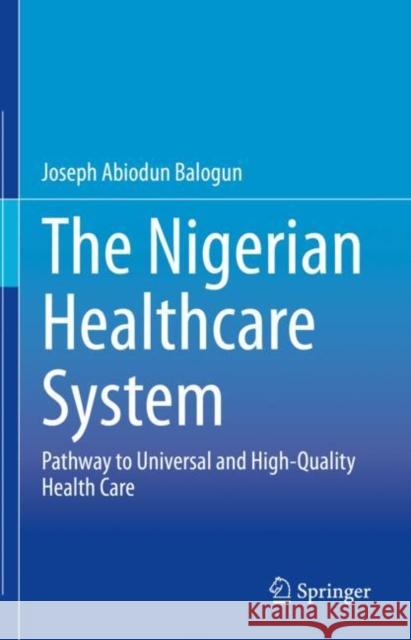The Nigerian Healthcare System: Pathway to Universal and High-Quality Health Care » książka
topmenu
The Nigerian Healthcare System: Pathway to Universal and High-Quality Health Care
ISBN-13: 9783030888626 / Angielski / Twarda / 2022
The Nigerian Healthcare System: Pathway to Universal and High-Quality Health Care
ISBN-13: 9783030888626 / Angielski / Twarda / 2022
cena 402,53
(netto: 383,36 VAT: 5%)
Najniższa cena z 30 dni: 385,52
(netto: 383,36 VAT: 5%)
Najniższa cena z 30 dni: 385,52
Termin realizacji zamówienia:
ok. 16-18 dni roboczych.
ok. 16-18 dni roboczych.
Darmowa dostawa!
The modern-day practice of health care was imported into Nigeria over 500 years ago. In 1947, the first national health plan was developed in Nigeria with the primary goal of providing universal health care (UHC), but this goal remains elusive to date. This comprehensive book presents the roadmap needed to attain UHC in Nigeria and offers a blueprint for achieving high-quality health care in the nation.
- The Organizational Structure and Leadership of the Nigerian Healthcare System
- The Vulnerabilities of the Nigerian Healthcare System
- The Spectrum of Complementary and Alternative Medicine
- Emerging Developments in Traditional Medicine Practice in Nigeria
- The Plight of Persons Living with Disabilities: The Visible Invisibles in Nigeria
- A Comparative Analysis of the Health System of Nigeria and Six Selected Nations Around the World
- A Qualitative Investigation of the Barriers to the Delivery of High-Quality Healthcare Services in Nigeria
- The Political and Economic Reforms Needed to Achieve Universal and High-Quality Health Care in Nigeria
- Reimagining the Nigerian Healthcare System to Achieve Universal and High-Quality Health Care by 2030
The Nigerian Healthcare System: Pathway to Universal and High-Quality Health Care is ideal for adoption as a textbook in health services administration, health policy and management, health informatics, healthcare delivery systems, and primary health care courses offered at universities in Nigeria. It also would appeal to students and faculty in African diaspora programs internationally. The book is also essential for policymakers, health systems technocrats, researchers, and professionals in various health disciplines, including medicine, nursing, and allied health.











